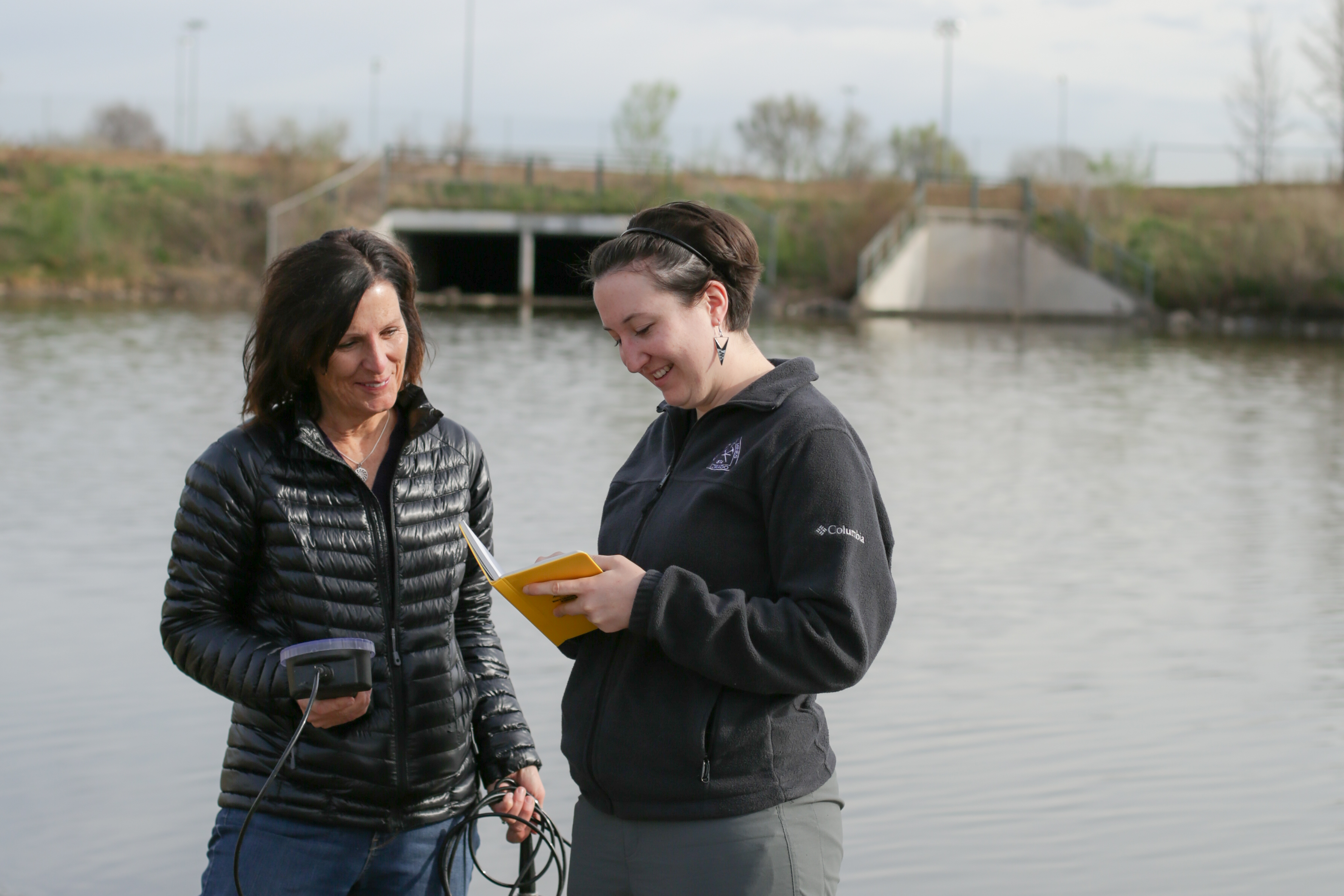Graduate Program
Program Description

The Hydrologic Sciences and Engineering Program at the Colorado School of Mines is an interdisciplinary graduate program comprised of faculty from several different Mines departments. The program offers fields of study in fundamental hydrologic science and applied hydrology with engineering applications.
Our students typically accept jobs in areas such as contaminant characterization and remediation, groundwater or watershed modeling, water-resources assessment, ecologic restoration and environmental restoration. Typical employers for M.S. graduates include environmental consulting firms, the U.S. Geological Survey, the U.S. Environmental Protection Agency, the petroleum industry and state regulatory agencies. Ph.D. graduates find employment in colleges and universities, national research laboratories, environmental consulting firms, federal agencies and self-owned consulting businesses.
Our students are among the best in the country, and have been given a number of prestigious awards for their work, from AGU Best Presentation Awards to NSF Graduate Fellows. We are proud of the tradition of excellence these students have set.
We have a very active student group; follow recent events occurring here in the HSE program on the Hydrologic Science and Engineering Club page.
The Hydrologic Science and Engineering Program is always looking for outstanding graduate students. Please contact faculty you are interested in working with directly, letting us know about your research interests and experience. In your application to the program, note who you might be interested in working with.
Program Summary
Degrees Offered
- MS and PhD in Hydrology
Participating Faculty
- Academic, 32
- Research, 2
Admissions Deadline
- December 15
For additional questions, contact:
Rachel McDonald
Department Manager, Hydrologic Sciences and Engineering Program
Colorado School of Mines
Golden, CO 80401
303-273-3321
rmcdonald@mines.edu

Additional Program Information
Degrees
The Hydrologic Science and Engineering Program currently offers the following degrees:
- Combined baccalaureate and master of science, hydrology
- Master of science, hydrology (thesis or non-thesis option)
- Doctor of philosophy, hydrology
In addition, the Hydrology degrees have the following three areas of specialization, each with slightly different curricular requirements that can be found in the catalog:
- Hydrogeophysics
- Hydrobiogeochemistry
- No area of specialization is required, however
Admission
Students applying to the Hydrology program must have a baccalaureate degree in a science or engineering discipline as well as the following coursework:
- College calculus (two semesters)
- Differential equations (one semester)
- College physics (one semester)
- College chemistry (two semesters)
- College statistics (one semester)
Some prerequisites may be completed in the first semesters of the student’s graduate program. In addition, the deficiency in undergraduate differential equations and/or statistics may be met by taking GEGN 581: Analytic Hydrology in the first (Fall) semester. Recent admits have had an average GPA of 3.4 across a variety of majors. The Graduate Record Exam (GRE) is not used for ranking of candidates. Applicants may upload GRE results if they feel that it augments their application package.
Financial Assistance
Applicants seeking financial support should indicate such within the application for admission. Support may be in the form of teaching assistantships (TA), research assistantships (RA) or fellowships. Generally, these awards are reserved for students pursuing a research-based program. To be considered for financial support, students should apply by December 15.
TAs are generally offered by March 15 for the next academic year, so are not usually available beginning with the spring semester. RAs are offered by individual faculty to students whom they expect will contribute quickly to a particular funded research project. Applicants interested in RAs should contact directly the faculty members whose research interests parallel their own.
Curriculum
Students are required to take courses from a core list of four classes, and a number of electives. A minor degree is not required for HSE graduate degrees.
Required HSE Classes:
- Groundwater Engineering (GEGN 466, taught in the fall by Kamini Singha)
- Surface Water Hydrology (GEGN 582, taught in the fall by Adrienne Marshall)
- Fluid Mechanics for Hydrology (GEGN 585, taught in the fall)
- Hydrochemical and Transport Processes (CEEN/GEGN 587, taught in the spring by John McCray and Alexis Sitchler)
or, for those students interested in learning more hydrogeochemistry:
- Groundwater Engineering (GEGN 466, taught in the fall by Kamini SIngha)
- Surface Water Hydrology (GEGN 582, taught in the fall by Adrienne Marshall)
- Fluid Mechanics for Hydrology (GEGN 585, taught in the fall)
- Principles of Environmental Chemistry (CEEN 550, taught in the fall by Tim Strathmann)
- Contaminant Fate and Transport (either CEEN 580, taught in the fall by Chris Higgins OR CEEN 584, taught in the spring by Tissa Illangasekare)
*Students who plan to incorporate hydrochemistry into their research may elect to replace CEEN 550 with a two-course combination that includes an aqueous inorganic chemistry course (GEGN/CHGC 509, fall) and an aqueous environmental organic chemistry course (CEEN/CHGC 551, spring).
To learn more, please see the HSE catalog found here